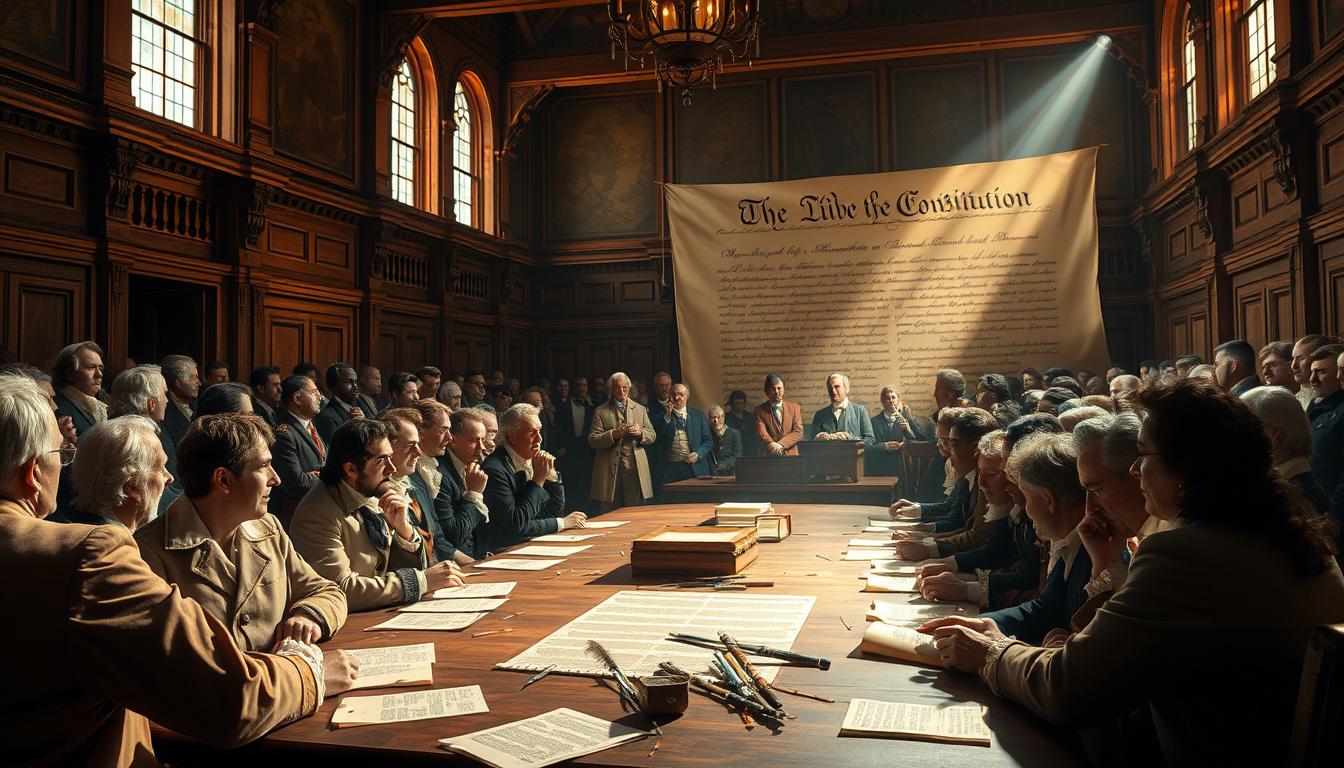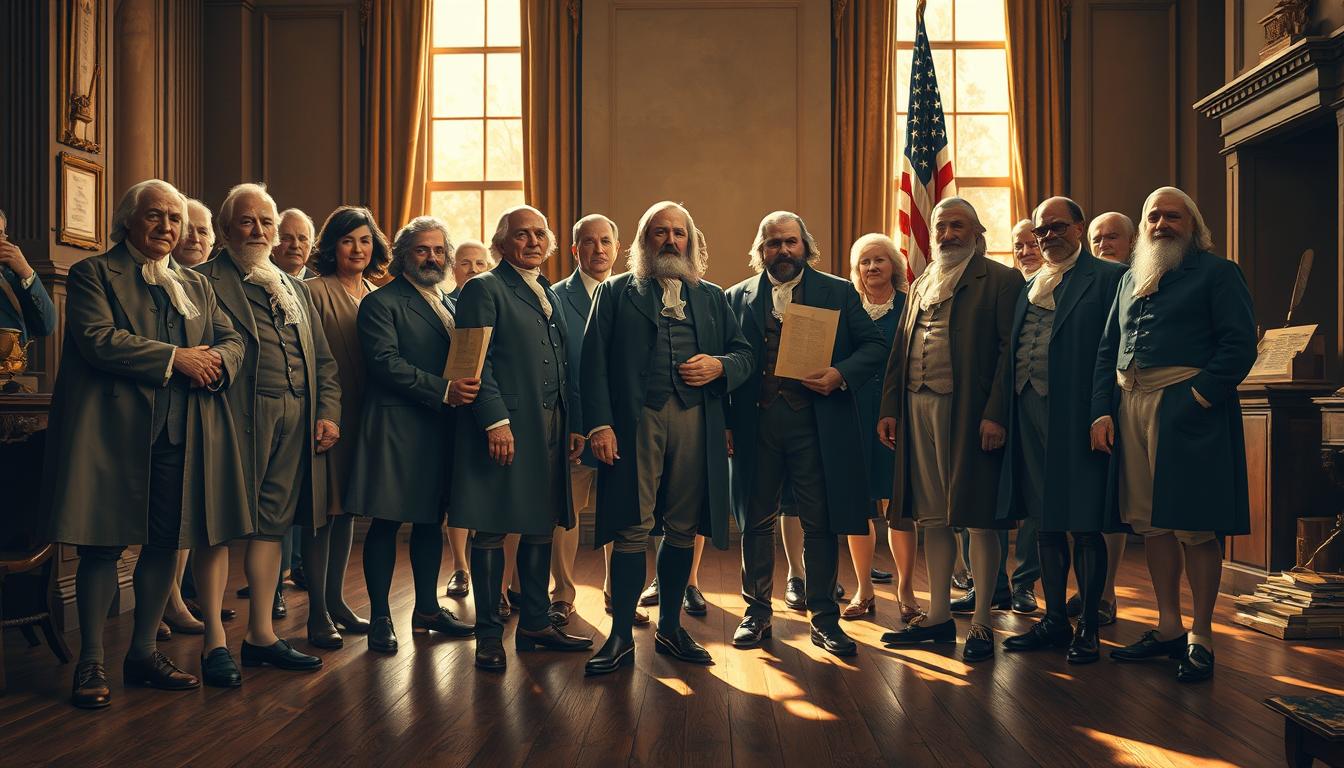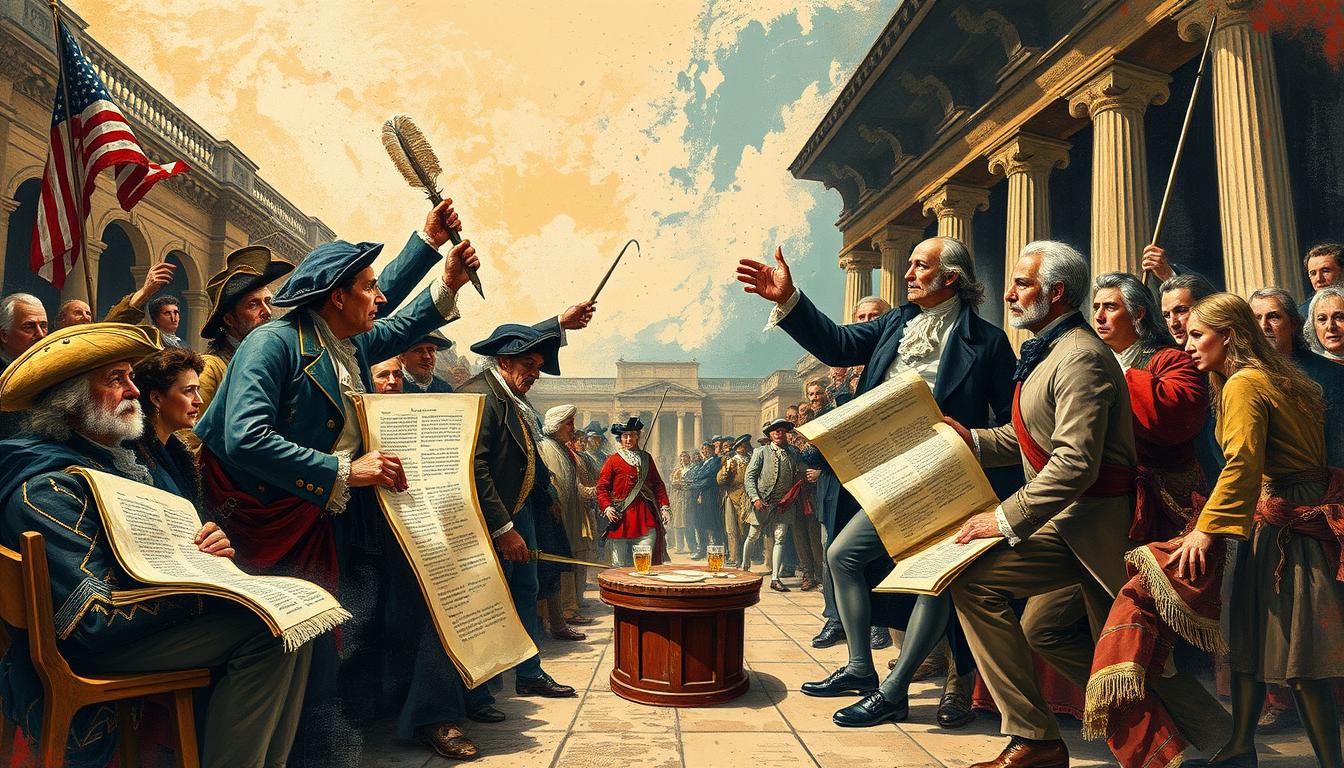The Visionaries Behind the Constitution: How the Founding Fathers Built a Nation

The Founding Fathers were pivotal in shaping the United States Constitution, a cornerstone of American history and nation building. Their collective vision and commitment to establishing a government based on principles of liberty and justice laid the foundation for modern democracy. These constitutional framers came together from diverse backgrounds and ideologies, contributing to a multifaceted document that continues to influence the nation's governance today.
In understanding the roles these key figures played, we can appreciate how their debates, compromises, and collaborative efforts at the Constitutional Convention ultimately crafted a framework that defined the powers and responsibilities of the government. Join us as we explore the remarkable journey of these visionaries who transformed their bold ideas into a living Constitution.
The Role of the Founding Fathers in Shaping America
The crafting of the Constitution occurred within a unique historical context marked by the aftermath of the American Revolution. This period saw a dramatic shift in political thought and governance as former colonies sought to create a nation built on democratic principles and individual rights. The Founding Fathers recognized the need for a strong yet adaptable government capable of addressing the grievances that had fueled their uprising against British rule. As they deliberated over the Constitution, they aimed to establish a framework that upheld the values of liberty, justice, and collective representation.
Historical Context of the Constitution
The historical context surrounding the Constitution's creation involved significant events that shaped the collective mindset of the American populace. Post-Revolution, the colonies were eager to forge a new identity that not only repudiated tyranny but also embraced a vision of governance that prioritized the rights of the individual. The Articles of Confederation proved insufficient in maintaining unity and order, prompting leaders to convene and devise a stronger federal system. This desire for improvement manifested in a document that sought to balance power across different branches while safeguarding individual liberties.
Influence of Enlightenment Thinkers
The Enlightenment influence played a pivotal role in shaping the philosophical foundation of the Constitution. Thinkers like John Locke, Montesquieu, and Rousseau emphasized the importance of social contracts and governance rooted in the consent of the governed. Their ideas regarding natural rights and the separation of powers inspired the Founding Fathers to embed these concepts within the Constitutional history of the nation. The principles articulated by these philosophers served as a blueprint for a government committed to protecting civil liberties and promoting the common good, thus influencing generations to come.

| Enlightenment Thinkers | Key Concepts | Impact on the Constitution |
|---|---|---|
| John Locke | Natural rights (life, liberty, property) | Rights protection and government accountability |
| Montesquieu | Separation of powers | Checks and balances within the government |
| Rousseau | Social contract | Government derives authority from the people |
The Visionaries Behind the Constitution: How the Founding Fathers Built a Nation
The creation of the Constitution involved pivotal personalities, each contributing uniquely to its development. Understanding the profiles of these key figures can illuminate the significance of teamwork in democracy during the fraught discussions of the Constitutional Convention. Four main figures stand out for their critical roles: George Washington, James Madison, Alexander Hamilton, and Benjamin Franklin.
Profiles of Key Figures
- George Washington: Often referred to as the father of the nation, Washington's leadership during the Constitutional Convention helped bring unifying authority to the proceedings. His presence encouraged cooperation among the delegates.
- James Madison: Known as the "Father of the Constitution," Madison's keen intellect and willingness to compromise shaped key aspects of the document. His detailed notes from the convention provide rich insights into the debates and discussions that occurred.
- Alexander Hamilton: As a vigorous proponent of a strong federal government, Hamilton pushed for central authority and advocated for the ratification of the Constitution through the Federalist Papers, promoting the advantages of a united republic.
- Benjamin Franklin: Franklin's wisdom and diplomatic skill facilitated consensus among delegates. His experience and humor served to ease tensions during conflicts and helped bridge the gaps between differing viewpoints.
Collaborative Efforts in the Constitutional Convention
The Constitutional Convention of 1787 was a testament to how diverse perspectives could coalesce through collaboration. Key figures of the Constitution engaged in intense debates, exemplifying the essence of teamwork in democracy. Proposals like the Virginia Plan and the New Jersey Plan sparked robust discussions about representation and state power, illustrating the need for compromise.
| Plan | Proposed by | Key Features |
|---|---|---|
| Virginia Plan | James Madison | Representation based on population; strong central government. |
| New Jersey Plan | William Paterson | Equal representation for states; focus on preserving state sovereignty. |
The success of the Constitutional Convention in establishing the framework for the American government was largely due to these collaborative efforts. By recognizing the importance of each individual’s contributions and managing their disagreements, the Founding Fathers established a lasting document that would guide the nation.

Challenges Faced During the Constitution's Creation
The drafting of the Constitution was far from a straightforward process. Key challenges arose during its creation, particularly the conflict between Federalists and Anti-Federalists, alongside intense debates surrounding slavery and representation issues. These debates shaped the document and the future of the nation.
Conflict Between Federalists and Anti-Federalists
The ideological battle between Federalists and Anti-Federalists played a crucial role in the constitutional debates. Federalists, led by figures such as Alexander Hamilton and James Madison, advocated for a strong central government. They argued that a unified national structure would provide stability and prevent the chaos that had plagued the nation under the Articles of Confederation.
On the other hand, Anti-Federalists, including voices like Patrick Henry and George Mason, expressed deep concerns about the potential for government overreach. They feared the erosion of individual rights and state sovereignty under a powerful federal government. This division not only highlighted differing visions for America’s future but also led to significant amendments being proposed during the ratification process.
Debates on Slavery and Representation
The constitutional challenges were further complicated by the slavery debate and representation issues. The founding fathers faced the daunting task of addressing the delicate balance between free and slave states, which led to the infamous Three-Fifths Compromise. This compromise allowed states to count three-fifths of their slaves for representation in Congress, giving southern states increased political power at the expense of moral integrity.
This agreement sparked intense discussions about human rights and equality, highlighting the contradictions present in the new nation’s founding principles. The outcomes of these debates fundamentally influenced both the structure of the government and the trajectory of the nation regarding slavery and the rights of individuals.

The Lasting Impact of the Constitution on Modern Democracy
The Constitution of the United States has profoundly shaped the landscape of modern democracy, serving as a guiding framework not only for the nation but also for countries around the world. Its principles continue to inspire movements for justice and equality, showcasing the lasting impact of the Constitution over the centuries.
Influence on Future Generations
The Constitution remains a source of inspiration for future generations, promoting values such as individual rights, liberty, and democratic governance. It empowers citizens to advocate for their rights and influences political discourse. This has fostered an environment where civic engagement thrives, making it a crucial element in the evolution of rights.
Constitutional Amendments and Their Significance
The Bill of Rights and other constitutional amendments play a significant role in expanding civil liberties and addressing societal changes. Every amendment reflects societal values and the ever-evolving landscape of rights, from the abolition of slavery to women's suffrage and civil rights. Each change illustrates how the Constitution adapts to maintain its relevance in a modern democracy, ensuring that it meets the needs of its diverse population.
| Constitutional Amendment | Year Ratified | Significance |
|---|---|---|
| First Amendment | 1791 | Protects freedoms of religion, speech, press, assembly, and petition. |
| Thirteenth Amendment | 1865 | Abolishes slavery and involuntary servitude. |
| Nineteenth Amendment | 1920 | Grants women the right to vote. |
| Twenty-fourth Amendment | 1964 | Prohibits poll taxes in federal elections. |
| Twenty-sixth Amendment | 1971 | Lowers the voting age to 18. |
Understanding the Legacy of the Founding Fathers
The legacy of the Founding Fathers is deeply woven into the fabric of American society, shaping not just the nation’s historical narrative but also its contemporary discussions on governance and rights. Their ideals, captured in the Constitution, serve as a foundation for ongoing debates regarding individual liberties and the role of government. As America continues to evolve, the Constitution’s ongoing relevance remains a hotly debated topic, highlighting both the strengths and limitations of the framework they established.
Reflecting on the historical impact of the Founding Fathers requires examining their vision of democracy and justice, which has inspired global movements aiming for similar principles. Countries around the world look to the American model when grappling with their own governance issues, suggesting that the Founding Fathers’ influence extends far beyond the borders of the United States. This international appreciation serves as a testament to how their ideas resonate even today, presenting the Constitution not merely as a historical document, but as a living instrument.
In summary, the American legacy built by the Founding Fathers invites us to engage with the Constitution in a meaningful way. It encourages us to appreciate the balance of ideals, compromises, and debates that were instrumental in forming a democratic society. Recognizing this legacy fosters a continuous dialogue about the Constitution's applicability and the evolution of American values, reminding us that its principles are as significant now as they were over two centuries ago.
